
2018 TruePoint Insurance all rights reserved
TruePoint Insurance is one of Georgiaís fastest growing insurance agencies. We are affiliated with SIAA, a network of over 5,000 insurance agencies across the US, who by joining together have increased their strength and stability...
1000 Pine Barren Rd.
Pooler, GA 31322
Phone : 912-330-1265
Email : info@truepointgroup.com


2018 TruePoint Insurance all rights reserved
The insurance approach for covering boats and boating property is quite like what is used to protect cars  and homes. Essentially insurance is offered on a package basis, meaning that there is coverage for physical property as well as protection against the legal and financial consequences of injuring others or damaging property that belongs to others.
and homes. Essentially insurance is offered on a package basis, meaning that there is coverage for physical property as well as protection against the legal and financial consequences of injuring others or damaging property that belongs to others.

Property Coverage РTypically a boatowners policy covers:

This property must be owned by the person who is named as the policyholder. There are limited instances when such property that is temporarily in the policyholder’s possession also qualifies for coverage.
Items and situations that aren’t covered include boating property that is used in business activity, losses that involve races or competitions (an exception is made for sailboats) and boats that are used, full-time, as residences.
Liability Coverage РBesides protecting boating property, a boatowners policy also responds to claims or lawsuits caused when another person is injured, and /or when another person’s property is damaged or destroyed. An example would be a collision where the owner of a large speedboat collides with a person on a jet ski, seriously injuring the rider and demolishing the jet ski. The policy would handle both portions of such a loss. The liability portion would also provide a legal defense against lawsuits.
Another important coverage under the liability section is medical payments. This provides reimbursement for, typically, emergency or immediate medical treatment expense. Consider a person who slips on a boat deck and needs transportation to an emergency for treatment of a broken bone or concussion. Such costs would qualify under medical payments.
As is the case with property coverage, there are liability situations that are NOT covered by a boatowners policy, including losses that involve business activity, transmission of communicable disease, unauthorized operation of boating property, intentional acts, and criminal activity.
Boating property is a substantial investment and boatowners coverage is an efficient, affordable way to guard against accidental losses.
COPYRIGHT: Insurance Publishing Plus, Inc. 2018
All rights reserved. Production or distribution, whether in whole or in part, in any form of media or language; and no matter what country, state or territory, is expressly forbidden without written consent of Insurance Publishing Plus, Inc.
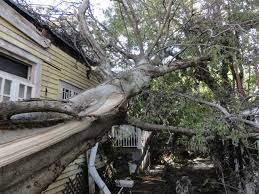
If you‚Äôre like most, replacing your home and personal property are the primary reasons for purchasing a homeowners insurance policy.¬† While that is important, insuring your property may not be the most important coverage offered by your homeowners’ insurance policy.
Insurance claims in Kentucky and many other areas increase during the spring.  Severe weather is the primary culprit of Spring insurance claims.  What would happen if a tree fell on your house during a windstorm and damaged your home?  After you meet your policy deductible, your homeowner’s insurance policy would cover the cost of repairs.
What if the wind had been blowing in the other direction and instead of crashing through your rough, your neighbor’s home is the one damaged.  In most cases, your neighbor’s insurance would cover the damages to his house.
However, there are cases where you are liable.  If the tree was dead, dying, diseased or unstable you could be on the hook.  If you are cutting the tree down, you are liable.
What‚Äôs your liability exposure?¬† ¬†What should your liability limit be?¬† It depends!¬† But one thing is for sure.¬† You need to have input.¬† If you’re being left out of this process, your likely be left out of many other decisions.

No one will deny the importance of communication.  How will things go if you decide not to communicate with your boss?  Even better, your spouse?  Not even an occasional Uh-huh.
Your homeowner’s policy protects you from many¬† ¬†But there are always people that you would rather not talk toMost of us could quickly compile a list of the top ten people that we didn’t want to talk to.¬† If we compiled a list of the people that we least wanted to communicate withYour boss communicates with you, so does your spouse.¬† While at times most of us would The job of the insurance agent would be fairly simple if you were only getting property coverage.¬† How much is your house worth, how much personal property coverage would you like, and what causes of loss do we need to protect against.
 Liability exposures are much more difficult to define.  How much will it cost to repair/replace your neighbor’s home in the example provided above?  Do you have adequate personal liability protection?
Liability exposures are much more difficult to define.  How much will it cost to repair/replace your neighbor’s home in the example provided above?  Do you have adequate personal liability protection?
While the claim to repair the neighbor’s home could be very significant, relative to other potential liability exposures, this would be small.  Kids open the door to much larger exposures when their invited and even uninvited friends have access to your pool, trampoline, treehouse, fireworks, go-carts, and more.  How much coverage would you need if an injury or death occurred on your property due to your negligence?
Take some time to review your homeowner’s policy.  The limits on your home will most likely exceed the value of your home and personal property.  Can you say the same about your liability limits?  Finally, speak to a qualified insurance broker that can provide you guidance.  The last thing you need is for someone that can sell you insurance, what you truly need is an individual that can work with you in developing a compressive risk management plan.
 At one time golf carts were seen exclusively on golf courses. Then, since golfing is part of the sports world, other sports saw their usefulness, so carts popped up along the sidelines of football fields and near baseball dugouts, shuttling players about. Today, many more people are aware of the non-sports usefulness of golf carts…..and that is becoming a problem.
At one time golf carts were seen exclusively on golf courses. Then, since golfing is part of the sports world, other sports saw their usefulness, so carts popped up along the sidelines of football fields and near baseball dugouts, shuttling players about. Today, many more people are aware of the non-sports usefulness of golf carts…..and that is becoming a problem.
Increasingly, more exceptions are being made regarding golf cart use. At first they could be used on areas close to golf courses, then retirement communities made exceptions, then gated and other, larger property-owner communities allowed their use. Now, exceptions are being made for their limited, public street use in small towns, college communities and in other situations.
The increased use of golf carts means the increased number of golf cart accidents. Such incidents are a particular concern since they may involve elderly drivers who may have impairments or slower reaction times. Further, golf carts are popular with very young, frequently unlicensed drivers who may lack care and experience in operating golf carts safely.

Pairing up golf carts with higher risk operators creates a high-risk situation. Consider several features of golf carts:
While carts are ideal for traveling along fairly level, soft-surface areas; their features and design make them quite hazardous on other surfaces. Some golf carts can move at higher speeds, but their low clearance and rigid structure make them prone to rollovers. While carts are relatively light, they still are easily heavy enough to cause serious, even fatal injury to persons trapped beneath them. It also makes a  tremendous difference being in an accident on a grass surface as opposed to an asphalt, gravel, packed-dirt or cement road. Some accident statistics reveal that golf cart accidents often involve children who are hurt when flung from carts during turns.
tremendous difference being in an accident on a grass surface as opposed to an asphalt, gravel, packed-dirt or cement road. Some accident statistics reveal that golf cart accidents often involve children who are hurt when flung from carts during turns.
Another issue with golf carts is that there is no consistent regulation regarding their use and safe operation. The real issue is awareness! Persons who own and use golf carts away from courses should be careful about how they operate such vehicles, who are allowed to drive and ride in them and what safety procedures must be used to minimize accidents. No matter how cute, easy-to-operate and economical they are, golf carts are motorized vehicles that can cause serious loss and injury. Use them with care!
COPYRIGHT: Insurance Publishing Plus, Inc. 2016
All rights reserved. Production or distribution, whether in whole or in part, in any form of media or language; and no matter what country, state or territory, is expressly forbidden without written consent of Insurance Publishing Plus, Inc.
http://www.insuringky.com
 Welcome to 
Thank you for choosing us for your insurance needs! It is our commitment to provide our clients with quality insurance products at a great price, and we are so pleased to have you as a new customer! As you may have already discovered, we offer real-time quotes on our website, payments over the phone, and E-signature options for most documents. Did you know you can also print ID Cards directly from our website? Of course, we always enjoy meeting and seeing our customers face to face! However, we understand your time is valuable, so we offer electronic options, as well as two office locations in order to accommodate your schedule. We have expanded our service team, as well, and look forward to helping you protect what is valuable to you!
OUR SERVICE TEAM:
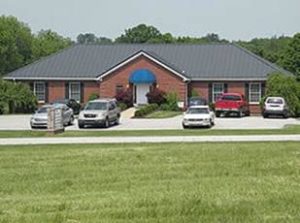            
           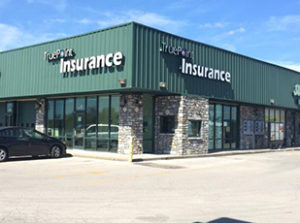
6287 Taylorsville Rd.             1085 Eagle Lake Drive
Fisherville, KY  40023           Lawrenceburg, KY  40342
                          PHONE: (502)410-5089                                                          
                         PHONE: (502)410-5089                                                          
Jordan Milburn, ext. 105                                                                                                                                     Jessica Coleman, ext. 120
Licensed Service Specialist                                                                                                                                   Director of Client Services
CLIENT LIAISON                                                                                                                                              ACCOUNT EXECUTIVE
jordan.milburn@truepointgroup.com                                                                                                               jessica.coleman@truepointgroup.com
Jordan will likely be your first point of contact when you call. She is a licensed P&C Agent, and her primary responsibility is to ensure your satisfaction. From providing proof of insurance, taking payments, and processing policy changes to quoting/issuing new policies, she can often handle your requests quickly and efficiently (or direct you to the most effective resource available).
Jessica will be in the Lawrenceburg office from 8:30-4:30, M-F. She will coordinate with Jordan to ensure our agency is meeting the needs of our clients. As the Director of Client Services, she will be happy to review your policy at each renewal, and make sure you are receiving all of the discounts and coverage options available to you. You can call or email her to schedule your personal policy review. Also, if things change in your life (and they usually do), don’t forget to call and tell us! We want to keep you covered correctly! And if the worst should happen, and you need to file a claim, Jessica will gladly help you through the filing process for the quickest resolution possible.
They are both committed to giving you amazing service, and looking forward to working with you.
Please let us know if you have any questions about your new policy, or if you would like for us to quote another type of insurance for you. We appreciate your business!
Sincerely,
Brad and Kristen Smith
P.S. If you are happy with your service, Like, Share, or Leave a Review!  We’d love to hear your thoughts!
Homesharing has been a ‚Äúthing‚ÄĚ for years and its use is growing along with internet applications that facilitate transactions involving making a residence available for short-term rentals. Standard homeowner policies have long been issued under the assumption that a covered residence is usually occupied by the named insured and that person‚Äôs family on a full-time basis.
While insurance policies issued for homes, condos, and apartments do contemplate some situations involving other persons staying in a residence, those situations are allowable when they don’t involve financial transactions. Renting for income alters a residential situation into a business. Business activity creates a coverage problem which could result in policies being canceled or claims being denied. Renting all our part of a residence also results in types of losses that are uncovered because they haven’t been contemplated as insurable, residential activities.
Policy wording may exclude coverage for losses when they are directly related to a business. So, protection may be lost for the residence, residential property as well as for liability for damage or injury to others and their property.
Basic HO policies, if they don’t outright exclude losses involve compensated rentals, severely restrict other coverage. However, due to the rising popularity of homesharing, the insurance market is responding with options to provide more protection. A basic policy may be amended to extend protection which does the following:
However, this additional protection may still fall short of what is needed. The insurance market is now making broader coverage available that handles less common exposures such as ID theft resulting from homesharing, pest infestation caused by renters, liquor liability coverage arising from alcohol served during rentals, extra cost caused by excessive use of utilities, or personal and advertising liability.
Even with special coverage for homesharing, property owners should also be aware of consequences and cost of resolving issues such as breaking local zoning laws, violating residential association bylaws or legal costs of dealing with squatting situations. Homesharing is a popular component of the sharing economy, but participants need to be careful to get proper protection.
           Return to Part 1
COPYRIGHT: Insurance Publishing Plus, Inc. 2018 All rights reserved. Production or distribution, whether in whole or in part, in any form of media or language; and no matter what country, state or territory, is expressly forbidden without written consent of Insurance Publishing Plus, Inc.

If you don’t already have one, then it’s safe to assume your answer is yes. When it comes to insurance, we all want to know that we are entrusting the right people.
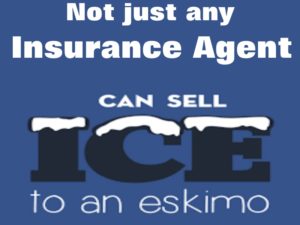


Insurance agent‚Äôs sell renters insurance based on cost. It‚Äôs easier that way, as the cost for renter’s coverage is insignificant when packaged with an existing auto¬†policy.
But cost is not the real story. Property coverages are great, but the exposure that concerns me the most is liability.
Let’s say you have $25,000 worth of personal property. If you get a renters policy and it’s covered, great. If you have fire and all the property is lost your renters policy will pay. If you don’t then you lose $25,000. With or without a renter’s policy you know what your exposure is.
But what will happen you invite your neighbor over for coffee….. We all know the McDonald’s coffee story. If you don’t have a  renter’s policy, you will be the one on the hook. With a renter’s policy, your exposure should be covered or at least significantly mitigated.
renter’s policy, you will be the one on the hook. With a renter’s policy, your exposure should be covered or at least significantly mitigated.
Will attorney’s fees be covered in the event of a frivolous lawsuit?  Most likely!
The bottom-line is simple. When we know the cost of a potential loss, we can better evaluate the risk-reward. Liability exposures are much more difficult to evaluate and there is no reasonable way to discern the value of an insurance policy. We live in one of the most litigious countries in the world.¬† Don‚Äôt underestimate the value of the renter’s liability coverage. More importantly, don‚Äôt pass on a renter‚Äôs policy based on the fact that you are willing to underwrite your own property risk. By doing that you are underwriting your liability exposure too.
  TruePoint Insurance offers many great options that allow renters to protective themselves from both property and liability exposures.  Call us today at (502) 410-5089, or visit our website and try out our Instant Online Rater where you can access real insurance quotes in real-time whenever or where you like.
 TruePoint Insurance offers many great options that allow renters to protective themselves from both property and liability exposures.  Call us today at (502) 410-5089, or visit our website and try out our Instant Online Rater where you can access real insurance quotes in real-time whenever or where you like.
Renter’s Insurance, another reason why we are insuringky.com
  In part 1, we began our discussion of the challenges represented by UAVs. Compared to radio-controlled, model aircraft, UAVs are, often, larger, more expensive craft and may be equipped with extensive photographic and computer components. They are used in ways that substantially increase the chance of loss because they are used in different settings. Originally UAVs were used in the following, non-military ways:
 In part 1, we began our discussion of the challenges represented by UAVs. Compared to radio-controlled, model aircraft, UAVs are, often, larger, more expensive craft and may be equipped with extensive photographic and computer components. They are used in ways that substantially increase the chance of loss because they are used in different settings. Originally UAVs were used in the following, non-military ways:

However, eyes continue to be opened about the, nearly, endless versatility with these devices. Today, interest in the commercial uses of drones is viral. Companies are developing or actively using drones for the following:
The increase in the number of UAVs and their use around people will generate way more incidents involving injuries and collisions (with persons and property), dropped packages, flight malfunctions, accidents with other aircraft, etc.
Insurance companies are in the forefront, determining how current or new products have to be changed or developed in order to handle additional loss exposures that will be created by growing personal and commercial UAV use.
Besides exposures involving injuries, damage or destruction to UAVs and to other property; UAV risks will also involve personal injury such as invasion of privacy, trespass, etc. They may also expand cyber liability risks as UAVs will face hacking threats. They may also create broader threats of terrorism.
UAVs are a part of a changing risk landscape and, again, insurance professionals will take the lead in responding to the challenges they pose.
Access the third and final post for this series on Unmanned Aircraft at:
https://www.insuringky.com/blog/insuring-unmanne…ones-part-3-of-3/
COPYRIGHT: Insurance Publishing Plus, Inc., 2015
All rights reserved. Production or distribution, whether in whole or in part, in any form of media or language; and no matter what country, state or territory, is expressly forbidden without written consent of Insurance Publishing Plus, Inc.
Unmanned Aerial Vehicles ‚Äď Part 1
 For most of us, our relationship with aviation is passive. We, except for rare instances, are involved in flight as passengers, not as flight crew. We board aircraft, take our seats and allow pilots to transport us, handling all of the complexities of air travel.
For most of us, our relationship with aviation is passive. We, except for rare instances, are involved in flight as passengers, not as flight crew. We board aircraft, take our seats and allow pilots to transport us, handling all of the complexities of air travel.
Whether air transport involves moving people, goods or both, its efficiency in reducing the time it takes to travel over long distances from weeks and days to hours is rivaled only by its potential severity of losses.
Protection against loss involving cargo or passengers is handled by aviation insurance which is designed to respond to low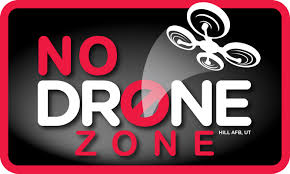 frequency but high severity accidents. Currently such policies are now being asked to handling an emerging, different exposure; unmanned aerial vehicles (UAVs).
frequency but high severity accidents. Currently such policies are now being asked to handling an emerging, different exposure; unmanned aerial vehicles (UAVs).
UAVs, aka drones, were developed initially for research, exploration and military use. In recent years, they have been increasingly exploited for personal and commercial use. Initially the potential for loss was low, similar to use of hobby, radio-controlled (RC) planes, copters, etc. But the situation with UAVs is transformative. RC aircraft are used recreationally. They are operated chiefly in wide open, isolated areas with little chance of interaction with persons or property. Losses usually involve damage to the aircraft. Injuries to persons typically are restricted to first aid for cuts, bruises and similar, fairly minor harm. Protection is adequately handled by homeowner policies or by specialty coverage provided by recreational RC flying clubs. That is NOT the case for UAVs.
For more information, please see Unmanned Aerial Vehicles ‚Äď Part 2
https://www.insuringky.com/blog/insuring-unmanne…ones-part-2-of-3/
COPYRIGHT: Insurance Publishing Plus, Inc., 2015
All rights reserved. Production or distribution, whether in whole or in part, in any form of media or language; and no matter what country, state or territory, is expressly forbidden without written consent of Insurance Publishing Plus, Inc.